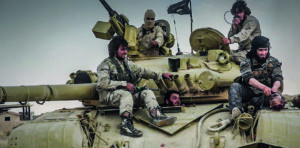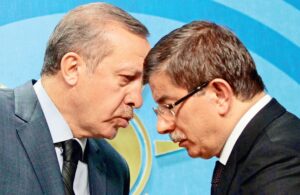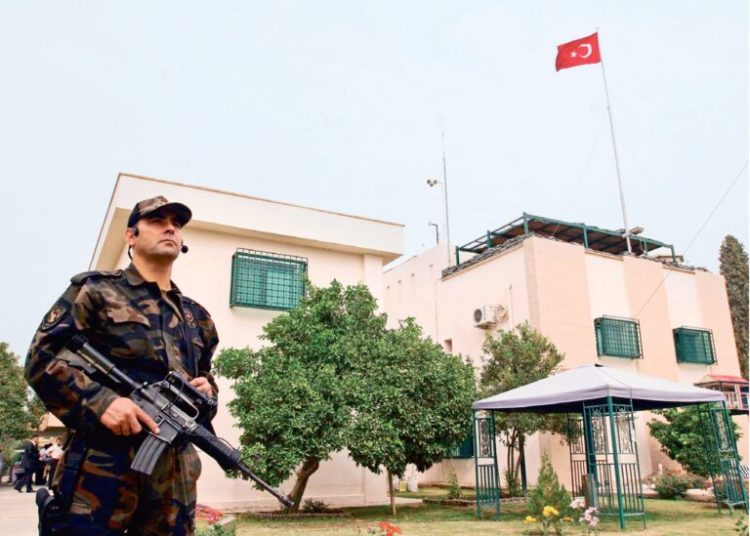Abdullah Bozkurt/Stockholm
President Recep Tayyip Erdoğan scrapped a long-planned secret military operation against the Islamic State in Iraq and Syria (ISIS) while instructing his intelligence agency MIT to secure the release of captured ISIS militants in Turkey in exchange for Turkish hostages in Iraq.
According to newly emerged details from statements provided by military officers during court hearings held at the Ankara 17th High Criminal Court, the elite Special Forces Command (Özel Kuvvetler Komutanlığı or ÖKK) set up a special team to launch a raid on ISIS in the Iraqi city of Mosul where 49 Turkish hostages were kept at the Turkish Consulate, seized by the terrorist group on June 11, 2014.
According to the testimony of Turgay Perişan, a chief sergeant in the ÖKK, the team was established with select members from top performing troops and ordered to start training secretly to storm the consulate.
Capt. Mehmet Emin Tüzel, who was team commander of this select unit, explained in court on November 13, 2017 how preparations were made for the highly classified mission. The order came from the General Staff to establish a special team whose members were drawn from various battalions based on their close combat skills and experience in nighttime free fall parachuting.
Transcript of court testimony by Capt. Mehmet Emin Tüzel:
“The success of the hostage rescue operation, which could have been carried out without harming the hostages, required the penetration into the target area without the notice of the terrorists. The only way to achieve this was to infiltrate with a free fall parachute operation during the night from a high altitude,” he told the court. Tüzel was among the 36 members of the unit singled out for the mission.

In his testimony in court on May 5, 2017 Col. Osman Kılıç, former chief of staff to Chief of General Staff Gen. Hulusi Akar, said in total some 60 to 70 people trained for three months. The team studied the building layout, identified drop and raid points, gathered intelligence on the ground such as how often and by what means food deliveries were made, the guard shift cycle, the number of ISIS militants, their weaponry, ammunition and explosives in the building.
“One plan was abandoned due to the gathering of people in a market near the [consulate] building before the [Muslim Eid al-Adha] feast of the sacrifice,” Kılıç added. Most of the simulations took place in an underground facility at ÖKK headquarters in total secrecy, and team members were completely cut off from any communication with the outside.
Transcript of court testimony by Col. Osman Kılıç:
Şener Kısak, a first lieutenant with ÖKK, told the court on November 27, 2017 that “It was decided to infiltrate by means of a free fall parachute operation as it did not make sense for the infiltration to be carried out by land. The mission was assigned to my battalion, but most of the battalion, including me, had no military free fall parachute training and therefore no experience. Upon an order, all military members with free fall parachute experience in the brigade were assigned to my battalion, and I was assigned to another battalion for an operation in the north of Iraq.”
Maj. Adnan Arıkan testified in court on April 2, 2018 that the team had run simulations in coordination with the air force. The ISIS militants’ movements around the consulate building were monitored 24 hours a day to keep the operation plans updated with last-minute details.
While the main team was getting ready with its training in Ankara, a separate ÖKK undercover team was on the ground in Mosul, gathering intelligence and making logistical preparations. Derviş Taş, a first sergeant with ÖKK, told the court on July 4, 2018 that his battalion near Mosul was ordered to support the rescue mission. He and another ÖKK member scouted Mosul, setting up safe locations for rear support of the mission.
However, as the team was getting ready to make the drop on ISIS in Mosul, the government suddenly ordered the military to stand down. It turned out the government instructed the intelligence agency to hold talks with ISIS and gave a mandate to release nearly 200 ISIS terrorists. A series of meetings were held between ISIS members and Turkish intelligence officers.

İlyas Aydın, a senior Turkish ISIS militant who was captured by Kurdish fighters in Syria, told the BBC that in the first meeting the ISIS team was led by Dr. Wa’il Adel Hasan Salman al-Fayad (aka Abu Muhammad al-Furqan), chief ISIS propagandist and member of the group’s Shura Council. The second in command at the meeting was Abu Mohammed al-Iraqi, a senior figure within the ISIS inner circle who was responsible for border areas and previously served as a personal bodyguard for Abu Musab al-Zarqawi, the leader of al-Qaeda in Iraq.
The third ISIS militant was Rashed al-Masri, whom Aydın claimed was captured by the US in the Philippines. A Turkish national of Arab origin from Hatay province named Abu Ali al-Turki was presented at the meeting as the ISIS translator.
Al-Furqan, who had direct access to ISIS leader Abu Bakr al-Baghdadi, was killed in Raqqah by a US airstrike on September 7, 2016. Zarqawi was killed in Iraq by the US on June 7, 2006.
In subsequent meetings with Turkish intelligence officers, Aydın was also among the attendees. ISIS demanded the release of detained ISIS militants in Turkey and asked for safe passage for fighters who wanted to come from all over the world to join ISIS. Turkey agreed to hand over ISIS militants captured in Syria as well as in Turkey including foreign fighters.
One of them was Abu Usama al-Gharib, an Austrian jihadist of Egyptian origin who had set up a radicalization network across Europe, luring German and Austrian jihadist aspirants to Syria. He was detained in Turkey and faced an extradition request from Austria in 2014. However, he was released as part of this secret deal with the Turkish intelligence agency. Two British nationals — Shabazz Suleman and Hisham Folkard – for whom the UK had issued Red Notices through Interpol — were also alleged to be among those who were handed over by Turkey to ISIS in the hostage swap in September 2014.
Transcript of court testimony by Derviş Taş:
Erdoğan, then prime minister, implicitly acknowledged a deal in remarks delivered on October 10, 2014. “We rescued 49 of our brothers after 102 days. They ask how we saved them, what we gave in exchange for their freedom. Well, whatever we gave, we gave. What was important was that we successfully carried this out,” he said.
A report by British daily The Times suggested at the time that some 180 militants, including two British citizens, were swapped with ISIS in the deal to release the Turkish hostages.
The fall of the Turkish Consulate to ISIS and the ensuing hostage crisis triggered a controversy in Turkey amid criticism from the opposition that blamed Erdoğan for not evacuating the consulate in time when ISIS forces were approaching the city. After ISIS gained power in Mosul, the foreign ministry started to work for the evacuation of the consulate’s personnel, and preparations were made to vacate the premises, but they were ordered by Ankara to stay. Members of the special forces unit deployed to guard the consulate were also ordered to stand own, not fire or engage in clashes with ISIS.
Davutoğlu, then foreign minister, had assured the Turkish public of the safety of the Turkish diplomats in the consulate 20 hours before its seizure by ISIS, suggesting that the government had already engaged in talks with the militant organization prior to the seizure. However, after the attack took place, Davutoğlu claimed Ankara was unable to execute an order to evacuate the Turkish Consulate due to intense fighting.
Transcript of court testimony by Maj. Adnan Arıkan:
Bülent Arınç, then deputy prime minister, even claimed that ISIS wasn’t targeting Turkey in seizing the Turkish Consulate in Mosul. “According to developments up until now, it is clear that Turkey is not a target nor seen as a target. It is out of the question that there is an attack targeting Turkey,” he stated during a meeting with the press in Ankara on June 13, 2014, adding that abducting the consulate staff didn’t mean that the raid was against Turkey. Erdoğan also said Turkey would use diplomacy to resolve the hostage crisis.
In an emergency ruling at the request of the government, an Ankara court even issued a blanket ban on media reports covering the hostage crisis at the Turkish Consulate in Mosul.
Main opposition Republican People’s Party (CHP) leader Kemal Kılıçdaroğlu said in a speech in parliament on July 12, 2016 that the ISIS leader who ordered the storming of the Turkish Consulate in Mosul had been treated at a hospital in Turkey’s border province of Şanlıurfa when he was wounded and that the costs were covered by the Turkish government. The CHP formally submitted a censure motion against Foreign Minister Davutoğlu over the failure to evacuate diplomatic staff and their families from the consulate in Mosul, thereby allowing them to be taken hostage by ISIS.
Most of the military officers who were involved in the plan to attack ISIS and rescue the hostages in Mosul were imprisoned by the Erdoğan government in 2016, citing dubious evidence of their involvement in a failed coup on July 15. Dozens of ÖKK officers were mobilized on orders from the General Staff during the July 15 events when multiple intelligence alerts indicated that military installations and bases would be the target of terrorist attacks by ISIS and other groups. The events turned out to be a false flag operation devised by President Erdoğan and his intelligence and defense chiefs to set up a mass purge of the Turkish military.












